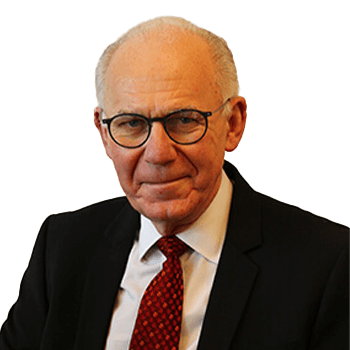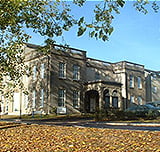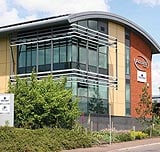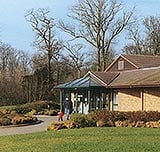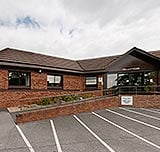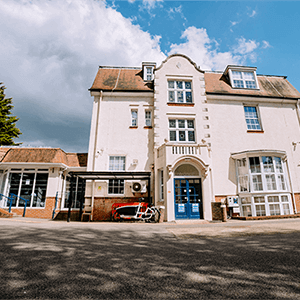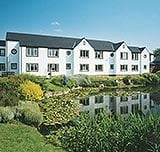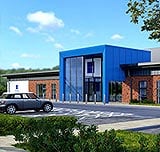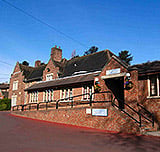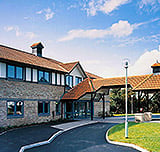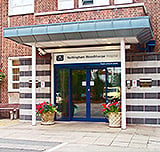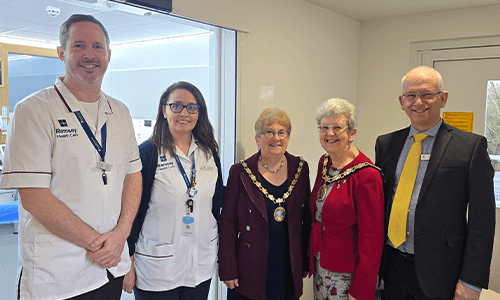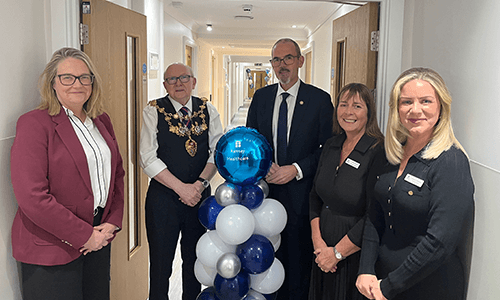Before the procedure:
There is no need to avoid eating or drinking before glue treatment because it is done under local anaesthetic. It is a good idea to wear loose fitting clothing and comfortable shoes.
You should be able to walk about normally after treatment, but it is advisable to arrange for somebody to drive you home, especially if you are having phlebectomies (removal of varicose veins through tiny incisions). If you are having sedation, in addition to local anaesthetic, then you should definitely not drive yourself home.
We will check your records and scans, and will ask you to sign a consent form. All the normal safety checks will be done, as for any surgical operation. If you are having phlebectomies your varicose veins will be marked carefully.
The procedure itself:
An injection of local anaesthetic is given to freeze the skin near the knee. Once the skin is numb a needle is inserted into a vein: all this is done using ultrasound pictures of the veins for guidance. A guide wire is then passed up the incompetent vein to the groin, followed by a catheter, which is positioned carefully near the top of the vein. You may feel something going up your leg, but this is not usually painful. Another catheter is prepared, containing the glue, and this is passed up through the first one. Pressure is then applied in the groin and injections of glue are given: a full three minutes of pressure are needed after the first injection, to ensure that the top part of the vein has been sealed off.
The catheter is then withdrawn, 3cm at a time, giving injections (0.1 ml glue) to each 3cm length of vein. After each injection pressure is applied for 30 seconds. Injecting a great (long) saphenous vein from the groin to below the knee typically takes about 15-20 minutes in total.
You should not feel the glue injections - but you will feel the pressure which is applied to be sure that the glue works properly.
If other main veins are incompetent and need to be treated, then the gluing process is repeated for those. Scanning is then done to be sure the vein is properly sealed off.
Phlebectomies (removal and ligations) are then normally done, to get rid of all your obvious varicose veins. These involve injecting local anaesthetic all around the veins, tiny incisions, and closure with adhesive strips.
There is no need for any compression by bandaging or a stocking (unlike other varicose vein treatments) over the vein which has been glued, but a bandage is applied over the part of the leg where phlebectomies have been done, for just 24 hours, to minimise any bruising.
Activity and recovery after the procedure
Immediately following the procedure, once you have dressed, you should go for a 10 minute walk. This allows you to get your leg moving well; minimises the remote chance of DVT (deep vein thrombosis); and ensures that you feel well and are safely mobile before you leave the hospital/clinic.
Any oozing through the bandage is likely to be of bloodstained local anaesthetic fluid, which can sometimes escape through one or more incisions. Any bleeding can be stopped by applying pressure. Some further bandaging can be applied before you leave, if necessary.
Get back to normal as quickly as you can. Once you are home, aim to get back to all your normal activities just as soon as you can.
Walking: You can walk as much as you want, as soon as you want. Frequent walking is a good idea in the days after a varicose vein procedure. There is no special advantage in going for a single long walk during the day, although you may walk as far as you wish. Frequent walking is more important than walking a long distance.
Work: Depending on your occupation, you may feel able to return to work within 1 – 2 days. If you have had phlebectomies for large or extensive varicose veins and you do a physically active job or spend long days on your feet then it is sensible to arrange a few days off work, because your leg/s may be bruised and tender.
Sports: You can return to sporting activity as soon after treatment as you feel sufficiently comfortable. Do not go swimming for two weeks after phlebectomies, to be sure that the little wounds are well healed.
Driving: You can drive as soon as you feel confident that you can make an emergency stop safely. It is probably best you not to drive yourself home following glue treatment, but other than that you can drive as soon as you feel able to do so safely. If you have had sedation you should not drive for 24 hours.
Bathing and showering: If you have had phlebectomies to remove varicose veins, then it is a good idea to keep the adhesive strips over the wounds dry for several days (up to ten days). A shower may be possible before this by covering your leg with a big plastic bag or (better) a protector such a Limbo (Thesis Technology, Chichester OP18 8AT or on prescription). After ten days, soak the adhesive strips off in a shower or bath, and thereafter shower or bath normally.
Air travel: The risk of DVT during long air flights or other long journeys in cramped seating is very low, but the normal advice is to avoid air travel for a month before or after any varicose vein treatment. Short flights may be reasonable: this is a matter for discussion.
Risks and possible problems after treatment by cyanoacrylate glue ablation and surgical phlebectomies
Aches, twinges, areas of tenderness, and lumpiness are quite common – largely as a result of phlebectomies, not the glue. These will settle down and should not discourage you from becoming fully active as soon as you are able. If you are uncomfortable, take paracetamol and/or ibuprofen.
Areas of numbness, tingling and rarely pain can occasionally occur at the places where varicose veins were removed by phlebectomies, or beyond; or rarely where they have been glued. This is because small nerves to the skin have been damaged. The numbness usually recovers over a period of months, but rarely a patch of numbness, tingling or discomfort may persist.
Phlebectomy wound problems. Delayed healing, infection and discharge of lymph fluid can occur, but are rare.
Thread veins and discolouration Any varicose vein treatment can occasionally be followed by the appearance of tiny red or blue veins in the areas where veins were, but this is rare. Brownish discolouration can also occur: usually this fades but it may take many months to do so.
Superficial vein thrombosis (phlebitis) and haematoma. The area over veins which have been glued can sometimes become red and tender. This usually settles within a few days. Lumpy haematoma (bruising) where veins have been removed can also sometimes cause inflammation. If you get pain or tenderness, then take an anti-inflammatory painkiller (e.g. ibuprofen) and/or paracetamol. Neither phlebitis nor haematoma represent infection and they do not need antibiotic treatment.
Deep vein thrombosis (DVT). DVT is known to be a risk after any kind of varicose vein treatment, but the risk after glue treatment is very low (around 1%). If you are at special risk of DVT (e.g. you have had DVT before or you are on a contraceptive pill or HRT) we will discuss special preventative measures with you. This may mean treatment with an anticoagulant for a few days after the procedure.
Reactions to the glue. Allergic or hypersensitivity (immune) reactions are the main risks of the cyanoacrylate glue itself. The commonest consists of redness and inflammation over part/s of the glued vein: this occurs in 1 – 6% people. A short course of steroids may be necessary to settle this kind of allergic reaction. More serious allergy is possible: there has been a very small number of reports of glue causing severe inflammation and skin damage, or becoming infected, requiring it to be removed by a surgical operation; this appears to be very rare (less than 1 in 10,000 risk). The risk of allergic or immune reactions is thought to be increased in people with a history of allergy or with autoimmune diseases.

